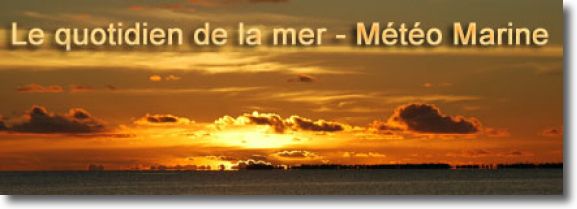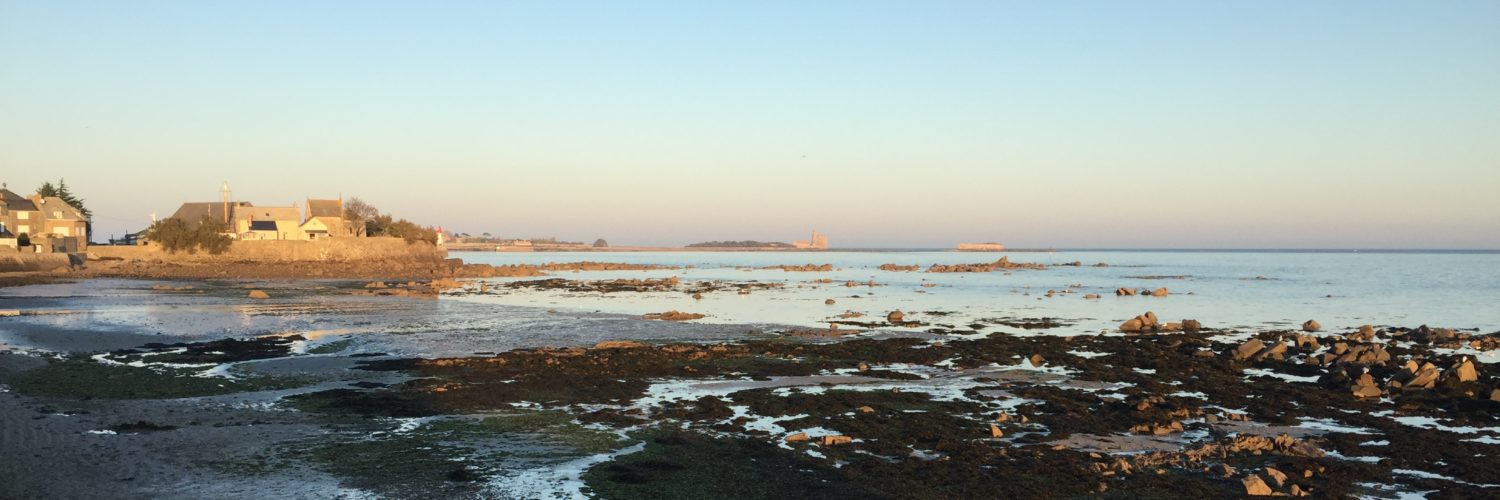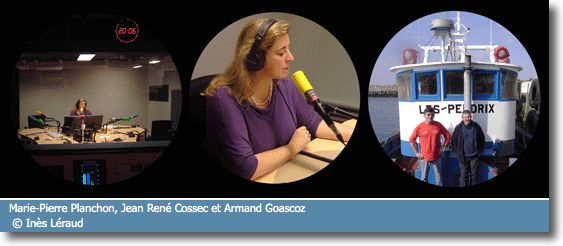Marine weather, or rather I should write : Marine Weather, with capital letters, is for modern mariners as ancient gods was for our oldest ancestors : a permanent reference to the conduct of our life.
The Long Waves
Not so long ago, this divinity was speaking to us, sailors to trade, fishermen or boaters, by a celestial voice carried by the waves. Our high priestess, Marie-Pierre Planchon, informing us twice a day of the destinies, happy or terrible, that we risked experiencing by venturing out on the waves. In those days the weather had a name and a voice, recognizable at a glance.
"The marine weather on France Inter It is a small newsletter written in the enigmatic language of sailors, who doesn't seem to be a good thing, has entered the imagination of a large number of people. To the point that a thousand letters of regret and poems to Marie-Pierre Planchon arrived on the radio when she almost disappeared in September 2008. Parisians nestled in their bed and lobster fishermen from Iroise Sea and Isle of Yeu, we offer a travel through the thoughts that cross, every evening, Listening to the marine weather. ”
For the nostalgic, So take pleasure in (re)Listen to this program, "Sur les Docks" by France Culture, on the marine weather report of France Inter which was broadcast on Friday 29 th 2009 (*). This will tell a lot about the regrets of faithful listeners when the forecasts have been reduced to a daily broadcast on Long Wave Radio France, at an undecided hour "a little after 8:00 p.m.", except retransmission of football match or extending news !
At the same time – and still today, moreover – British maritime hegemony is characterized by four marine weather forecasts with rhythmic precision timekeeping at times remained intangible in ages (at least 35 years old, to my knowledge only) on BBC Radio 4. Not easy to approach for french, I agree, but with some effort and a good lexicon (see Glenans Sailing Manuel) we ended up "taking the BBC" like the dictations of primary school, with a lot of mistakes, but the meaning was there. I cannot resist the pleasure of reminding you of an example, today available daily in Podcast on the BBC website.
To listen to the forecast, A simple "all-wave" radio receiver equipped with a telescopic antenna is sufficient. It picks up a great distance Long Waves, sometimes more than 200 nautical miles. This is a particularly economical solution.
La VHF
Here we enter the Global Maritime Distress and Safety System. It's serious. All along the coastline, VHF transmitters of the Maritime Affairs Administration (CROSS) provide weather information for the coastal strip up to 20 Nautical Miles offshore. Here again, An Hon. Senator,, with slow and precise diction, divulges three times a day a "coast" weather report at times of strict orthodoxy, staggered from transmitter to transmitter all along the coastline. If Mass is at 7:03 a.m., or 7:33 am, or 7:03 pm, it is not a minute more, let alone one less : the first three minutes of the round hour are reserved for a period of silence in order to listen to any distress calls.
A VHF transceiver must be carried on board, Fixed or portable, and an antenna of suitable quality. The higher the antenna, the farther it carries. It's already more expensive, but VHF provides many other services to mariners.
The SSB – Short Waves
Although not part of the GMDSS, who preferred the NAVTEX system for the bulletins of the zone up to 300 Miles offshore, the CROSSs continue to broadcast, once or twice a day depending on the region, weather forecasts for open sea in Single Side Band. And that's all the better.
All you need is an "all-wave" radio receiver equipped with a BFO (Low Frequency Oscillator) allowing the demodulation of the SSB, relatively inexpensive device. On the other hand, a good receiving antenna is practically essential.
The open sea – Shortwaves
For offshore sailors crossing the Atlantic in both directions, Radio France International Streamed once a day, at 11:33 UTC, and this for years, a bulletin covering all areas up to the West Indies, carried on several frequencies depending on the geographical area of reception. Arielle Cassim's sweet voice then created a warm bond, with its Sea Chronicle until 12:00 UTC, which came to brighten up the long days of crossings. As for France Inter and the BBC, A simple "all-wave" receiver and a good antenna were enough. (**)

Alas, Embedded computing is inexorably replacing radio. The Multiple Ways to Get GRIB Weather Files, Graphical weather maps, satellite images and even text forecasts, dominate upon the chart tables.
Despite their undeniable qualities, This electronic information will always be missing, For me, this brings the vital must of voices. Ethereal voice of a radio operator, grave and measured voice of an english speaker, This human warmth that accompanies us in the best or worst moments at sea, in those moments when you can sometimes feel very alone on the ocean.
Whatever technology brings us, and even if sailing is for some a way to spend only moderately time with our fellow human beings, do not lose the human contact carried by the radio waves. Who knows, Could we eventually fall into the terrifying isolation described by Clifford D. Simak in his science fiction novel City. I advise you to read it.
–––
(*) Now disappeared from the archives of Radio France. (Update September 25 th 2010)
(**) RFI announced the end of the broadcast of the marine bulletin on 31 December 2011. Arielle Cassim's show was stopped at the end of April 2010, Arielle Cassim having left RFI and created the website Seableue. (Update September 31 December 2011)
–––
All weather report schedules on the Marine guide from Meteo France.
–––



